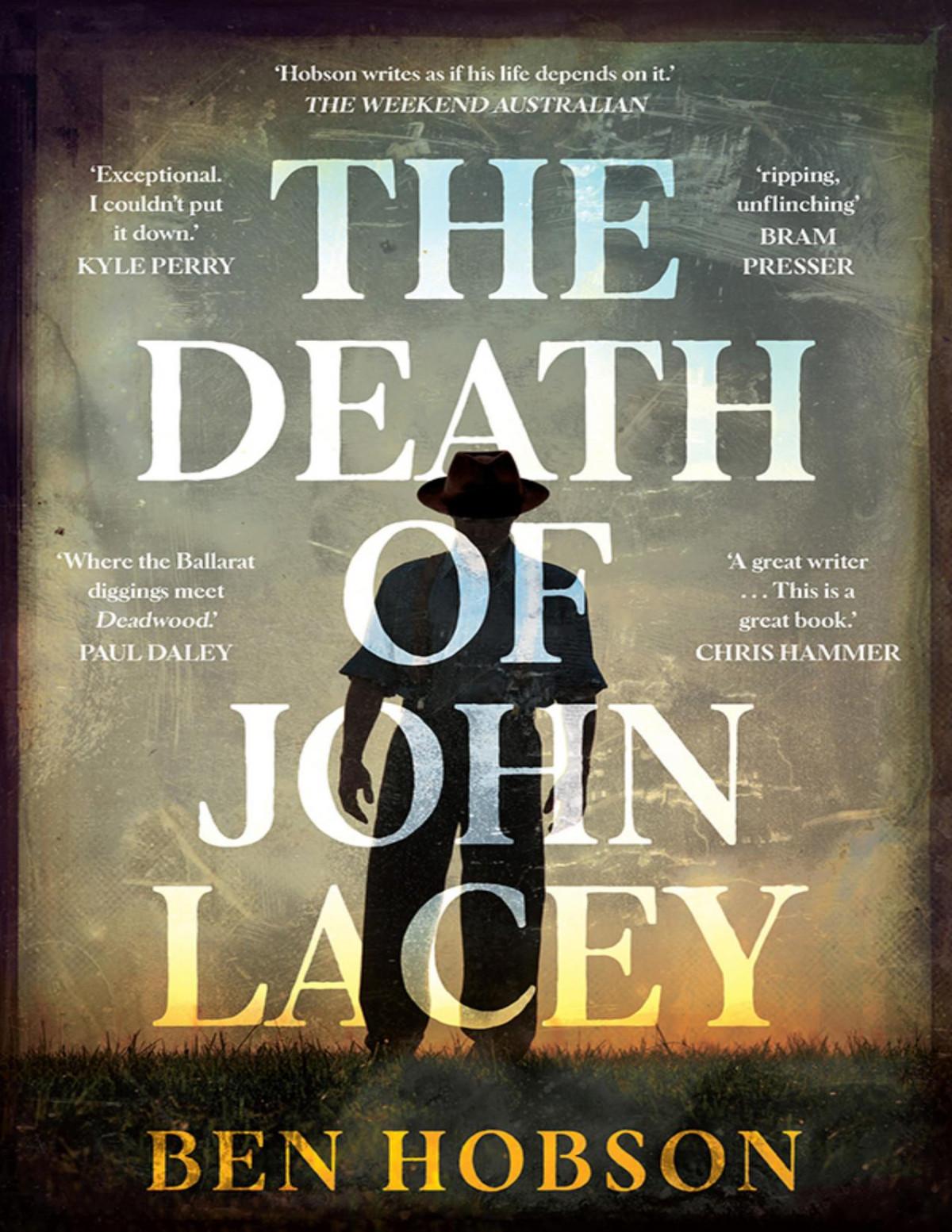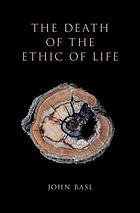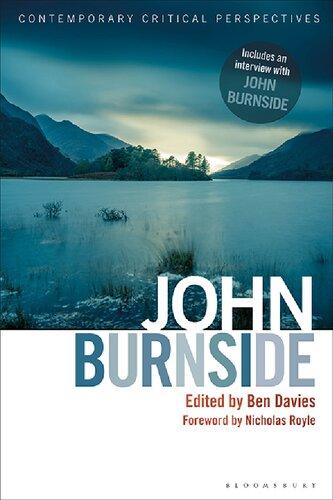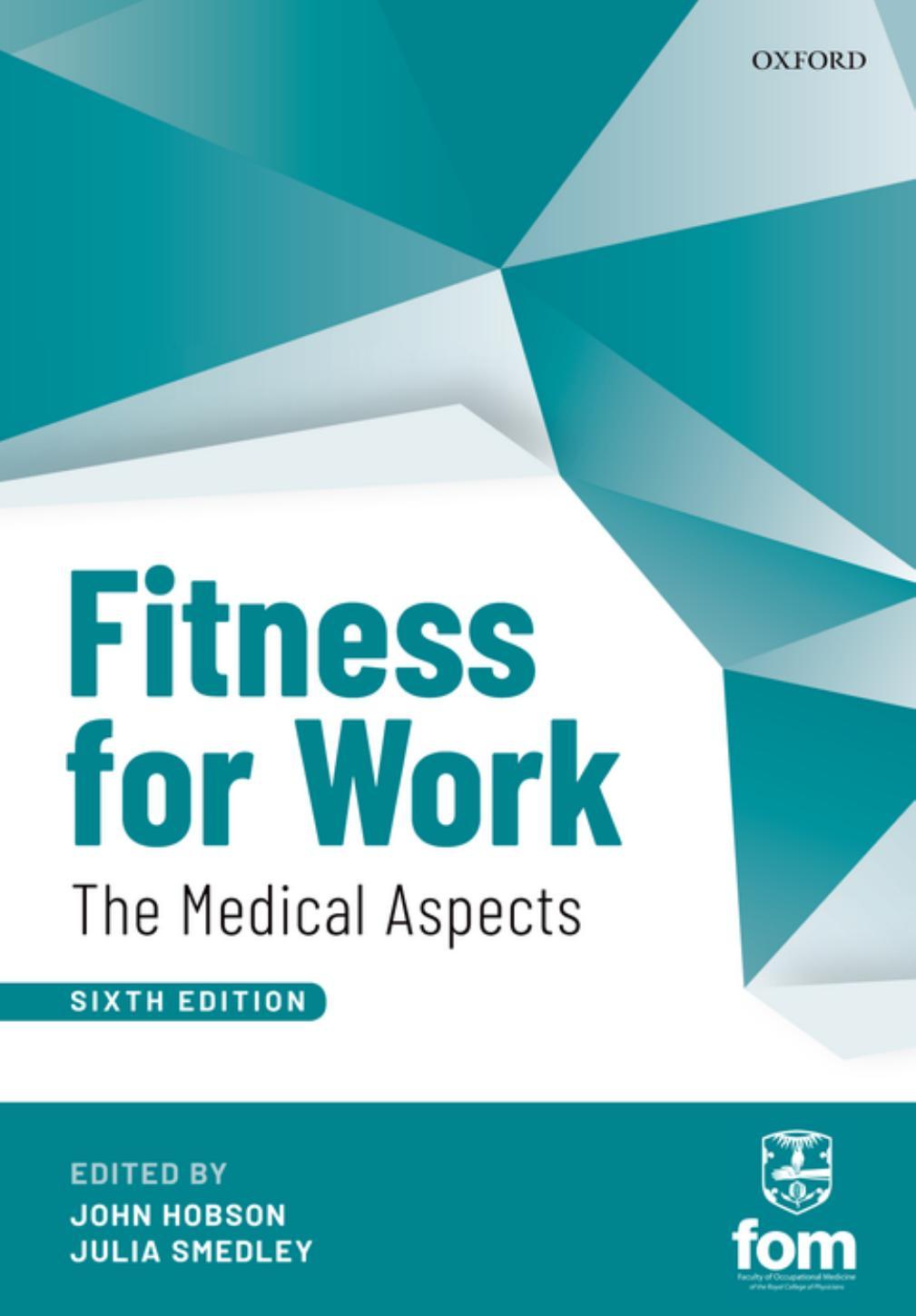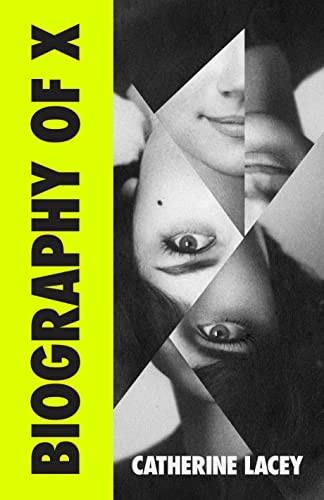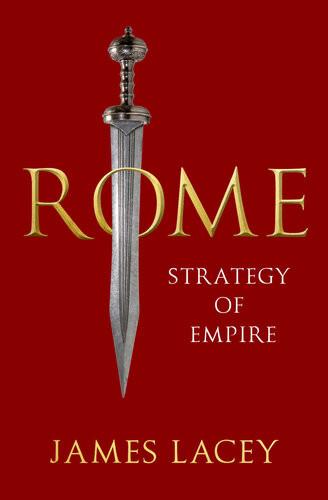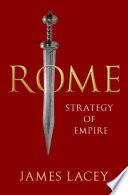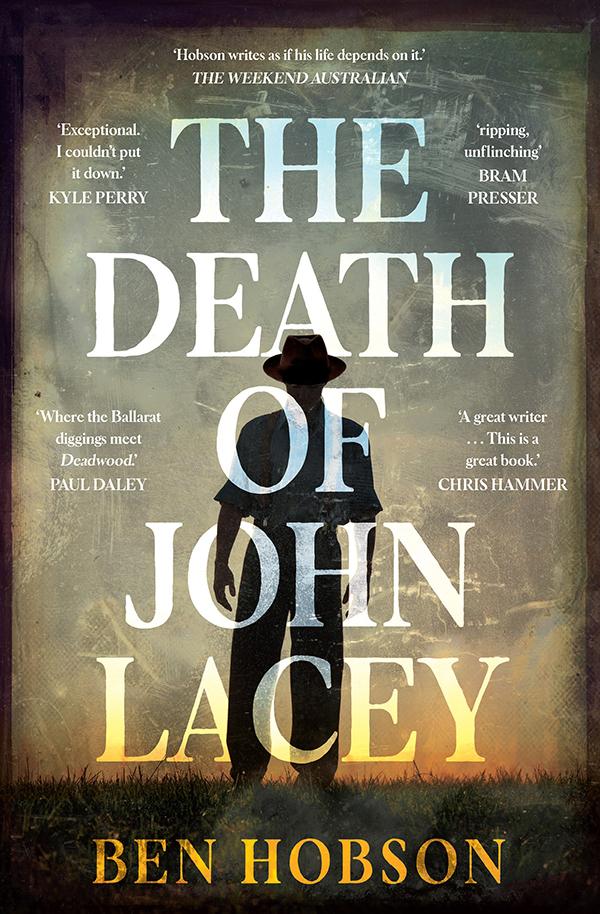The Death of John Lacey Ben Hobson
Visit to download the full and correct content document: https://ebookmass.com/product/the-death-of-john-lacey-ben-hobson/
More products digital (pdf, epub, mobi) instant download maybe you interests ...
The Death Of The Ethic Of Life John Basl
https://ebookmass.com/product/the-death-of-the-ethic-of-lifejohn-basl/
Fitness for Work: The Medical Aspects 6th Edition John Hobson (Editor)
https://ebookmass.com/product/fitness-for-work-the-medicalaspects-6th-edition-john-hobson-editor/
John Burnside Ben Davis (Ed.)
https://ebookmass.com/product/john-burnside-ben-davis-ed/
Death in White Pyjamas / Death Knows No Calendar John Bude
https://ebookmass.com/product/death-in-white-pyjamas-death-knowsno-calendar-john-bude/
Fitness for Work: The Medical Aspects Hobson
https://ebookmass.com/product/fitness-for-work-the-medicalaspects-hobson/
Children's Fiction Sourcebook Margaret Hobson
https://ebookmass.com/product/childrens-fiction-sourcebookmargaret-hobson/
Biography of X Catherine Lacey
https://ebookmass.com/product/biography-of-x-catherine-lacey/
Rome: Strategy of Empire James Lacey
https://ebookmass.com/product/rome-strategy-of-empire-jameslacey-2/
Rome: Strategy of Empire James Lacey
https://ebookmass.com/product/rome-strategy-of-empire-jameslacey/
Praise for e Death of John Lacey
‘A powerful morality tale that evokes the hopes and brutalities of Australia’s frontier with clarity, depth and empathy. Ben Hobson is a great writer. This is a great book.’ Chris Hammer, author of The Tilt
‘Where the Ballarat diggings meet Deadwood. Elegantly written and deeply unsettling, The Death of John Lacey is a gripping, evocative moral exploration of colonial violence, greed and dispossession on the Victorian goldfields.’ Paul Daley, author of Jesustown
‘Hobson shows us the frontier as it really was—a place full of human complexity. A brutal story, lyrically told.’ Rohan Wilson, author of The Roving Party
‘A gritty and richly evocative tale of loyalty, greed, dislocation and mercy set against the dark lawlessness and brutality of Australia’s colonial past. A story about the takers and taken-from, and the deep gulf of violence and inequality that lies in between.’ Dinuka McKenzie, author of The Torrent
‘Both spare and tender, The Deathof John Lacey reveals the bloodied seams that run through Australia’s colonial history. Utterly heartbreaking.’ Nigel Featherstone, author of My Heart is a Little Wild Thing
‘A ripping, unflinching reckoning with Australia’s past. Hobson turns the popular national mythos on its head and, with guns blazing, creates one of his own.’ Bram Presser, author of The Book of Dirt
‘Exceptional. I couldn’t put it down.’ Kyle Perry, author of The Deep
Praise for Snake Island
‘Darkly illuminating Hobson writes as if his life depends on it. Snake Island is an engrossing literary thriller that engages with pressing contemporary issues while exploring timeless questions.’ The Weekend Australian
‘Set before the rise of smartphones, the events of Snake Island are all the more suffocating for their technological isolation. There is such weight to the narrative, such a sense of impending doom, that you don’t dare take your eyes off the page.’ Australian Crime Fiction
‘Snake Island not only contains all the elements [of a Western] but it fairly revels in them. Hobson pulls no punches, letting us see into the minds of all his characters until we know them intimately, and building slowly but inexorably to a climax that is as tragic as it is inevitable … An engaging, entertaining read.’ Glam Adelaide
‘[Hobson’s] spare, muscular writing is captivating; and in the end, the scales are evenly weighted: corruption, rage and revenge are counterbalanced by loyalty, faith and redemption.’ The Saturday Paper
Praise for To Become a Whale
‘A powerful tale of fathers and sons and all that can’t be spoken between them. The writing is honest, rich and clean, and it made me feel so much. Too many writers fuss things up, but Ben tells it simply, which is so affecting.’ Sofie Laguna, author of Miles Franklin–winning The Eye of the Sheep
‘Hobson takes us to the depths of cruelty to show us life. A boy tries to be a man, a man tries to be a father, and both struggle to navigate what it means to be men. A great study in masculinity.’ Willy Vlautin, author of Lean on Pete
First published in 2023
Copyright © Ben Hobson 2023
All rights reserved No part of this book may be reproduced or transmitted in any form or by any means, electronic or mechanical, including photocopying, recording or by any information storage and retrieval system, without prior permission in writing from the publisher. The Australian Copyright Act 1968 (the Act) allows a maximum of one chapter or 10 per cent of this book, whichever is the greater, to be photocopied by any educational institution for its educational purposes provided that the educational institution (or body that administers it) has given a remuneration notice to the Copyright Agency (Australia) under the Act.
Allen & Unwin
Cammeraygal Country
83 Alexander Street Crows Nest NSW 2065
Australia
Phone: (61 2) 8425 0100
Email: info@allenandunwin com
Web: www allenandunwin com
Allen & Unwin acknowledges the Traditional Owners of the Country on which we live and work We pay our respects to all Aboriginal and Torres Strait Islander Elders, past and present
ISBN 978 1 76106 589 7
eISBN 978 1 76118 601 1
Set by Midland Typesetters
Cover design: Christabella Designs
Cover photograph: © Magdalena Russocka / Trevillion Images
AUTHOR’S NOTE
In the writing of this novel I have endeavoured to represent the attitudes of the early colonialists as accurately as possible, including their use of derogatory terminology and the expression of, and belief in, harmful ideas. However, it is important to acknowledge that these attitudes and beliefs are in no way acceptable by contemporary standards.
I wish to acknowledge the use of the Wadawurrung language, and extend my respect and gratitude towards the Wadawurrung people.
For my wife, Lena, who reads every dark and gritty story I write.
JAMES MONTAGUE
AND JOE MONTAGUE
EDWIN MONTAGUE was indicted for stealing, on the 4th of August, 1835, at St Leonard, Shoreditch, 6 sovereigns; 9 half-crowns; 1 shilling; and 1 box, value 1 penny; the goods and monies of William Bennet, in his dwelling-house. *
JANE BENNET. I am the wife of William Bennet, and live in the parish of St Leonard, Shoreditch—we let lodgings—the prisoner came to me on Thursday, the 30th of July, from the fever hospital, and asked me to accommodate him for a week, till he could write home to his mother for money to take him home—I consented, and on the 4th of August, at half past nine o’clock in the morning, I put the money, named in the indictment, into a box, in a handkerchief— the prisoner was not there then—he had been ill all night, and I had been up with him—I went out of his room, and received the remainder of my money to make up my rent from the other lodgers— I was not more than five minutes out of his room—when I returned, I missed him—I opened my drawers to take the money out, and missed it—it was in the second-floor room—I ran down stairs and made inquiry of him; he was not there—I afterwards saw part of the box in which the money was deposited—nobody but him could have taken it, they had no time—I lost 6 sovereigns; 9 half-crowns; 1 shilling.
WILLIAM STOTTER. I am a policeman. I received information of this, and went in search of the prisoner—on Monday, the 4th of August, about half-past seven o’clock in the evening, I found him in the Red Rover, Manchester coach, at the Angel, where he had
booked his place for Birmingham—I took him out of the coach, and told him it was a bad job—he said it was, if they could prove it against him—at the watch-house I found 4 sovereigns; 5 half-crowns and 4 pennies, and part of the box on him—I found a purse with the silver and halfpence on him—the four sovereigns were in the box. *
EDWIN MONTAGUE. The sovereigns were in the purse when the officer found it—he put the sovereigns into the box and the silver in the purse. *
GUILTY. Aged 18.—Transported for Life.
In all his young life Ernst had only known their farm. His mother would often tell him stories about the life she had led back in Scotland but all Ernst could do was nod, hoping his mother wouldn’t notice he didn’t share her longing. They had come so far inland when they’d first settled on their land that Ernst had never even seen the ocean; he had been just a babe when they’d made the journey. His mother promised him they’d go and see it as she swept her hand in front of her, bidding his eyes follow her gaze to her imagined waves, the sloshing blue she painted for him with her words.
We’ll travel back that way some day, and you’ll see it, she’d say. We’ll travel over it, back home.
He’d nod and smile.
It’s so dark, the blue.
He’d nestle into her and try to tell her with his body they were home already; there wasn’t any need for them to leave. But she was a hungry bird, never satisfied with the feed right in front of her. He knew it had been something for his father to earn his ticket and travel over from Van Diemen’s Land with his young family, find the small township of Bannockburn, and build this new house for them all. His mother, though, would quietly grumble when she thought he couldn’t hear, about the small size of the home, the large distance from the town, or the poor quality of the build, running her hands over the rough wood, latching the door closed with rope and nails, whispering about the need for a handle But Ernst admired that his father had
made anything at all. She was a slight woman, blond hair clutched tight to her skull with a comb. She would look out the window as she spoke of the ocean or she would look at the painting of the hills of Scotland his father had hung above the fireplace and her eyes would go distant like she had drowned in her memory. For the remainder of the day she would not be wrenched out until his father returned.
His father worked their fields late into the evening and would arrive home after they’d already eaten, smelling of sweat and dirt. He was a large man with furry arms and a heavy red beard. His words sounded like music when he spoke, like in him was some permanent song. He had a deep voice. He was stout, his stomach built of brick. Before entering the house he would wash up in the trough outside and then sit at the table and ask them both about their days as he ate, his hair still dripping with water.
Nothing much for us to do around here, Ed, Ernst’s mother said one night. She had her arms folded and was seated at the opposite end of the table to his father.
I know, his father said. He spooned in some thick mutton stew and it clung to his moustache. You should take Ernst up to see that other boy. You get on and see the woman. What’s her name?
You know we can’t. It’s too far.
His father licked his lips and spooned in another mouthful. I’ll take you, then.
We’ll all ride the horse together? All three of us?
You could sit in the back of the cart.
I’m not sitting in the back of the cart.
Isabelle.
She had this way about her that suggested her anger without her putting word to it. The hurried way she’d stride from a room or sit down and sigh. Or the way her fingers would clutch the fabric of her dress at her knees, scrunching it up tight, digging her nails in.
Later, in bed, he could hear them both still talking. Their small home only had one room, and at night his father draped a quilt, made up of sewn-together old burlap sacks that had originally held potatoes, over a rope he’d strung up after Ernst’s mother had been at him about the lack of privacy. Then Ernst could no longer see them—just their shadows silhouetted behind the cloth. His mother
would snuff the lantern before she undressed and it would not be lighted again until the following evening.
They talked a long time but he could not hear exactly what was said, since neither raised their voice for fear of waking him. Still, he could tell that in their whispers was all the disappointment they always strived to keep from him.
He woke in the early light of dawn to shouting from outside. He wiped the sleep from his eyes and sat up. From behind the hanging quilt he saw his mother yelling from the doorway. She was clutching the frame with one hand. He looked for his father but couldn’t see him.
He went to the door. In the yard was a group of black men and women, at least ten of them; the women had possum skins draped over their shoulders and the men wore nothing at all. Ernst tried not to look at their bodies. Behind them, children were staring with wide eyes, probably at him, and around their feet four dogs circled. Though their shapes were hard to make out in the early light, they appeared mangy and scary.
Ma? he said.
Go find your da.
Where is he?
A shout from the crowd. Their throats caught on their words in ways Ernst didn’t understand.
What’s bacca, Ma?
It’s tobacco, she said. Addressing the Aboriginals, she said, I told you we don’t have none. Then she shouted, Ed! Ed!
The men and women in the yard seemed unmoved by this. They just kept watching Ernst and his mother, laughing with each other.
He had heard the stories his mother and father told while they thought he was out of earshot. They spoke of people being speared,
of men and women and children being killed in their sleep, the blacks ghost-silent in the night as they crept into the homes. Ernst understood death. He had seen it many times when his father killed a sheep for them to eat. It would kick its legs for a bit but soon stop, and then his father would string it up and butcher it, his hands turning red and the front of his shirt darkening. He understood too that getting stuck in the guts with a spear would be painful. He didn’t want to be dead, for his legs to stop moving. The blacks in the yard didn’t appear to be holding weapons, but he knew from how his parents spoke about them that they would still be capable of harm.
His father rounded the corner of their home with his temper up. In his hands was his musket; he had it angled down but it was there so the blacks could see it. He stood in front of Ernst and his mother in the doorway, shielding them with his body.
You alright there, Iz? he asked without turning his head.
No, I’m not alright. These ones come up asking for our goods.
Ernst’s father raised his voice to the crowd in the yard. What’re you all up to?
Ed! the one in front shouted. He was smiling. Ed! This is your house?
What do you want? his father responded.
The man held out his hands like he wanted a present. You got bacca? We need some.
No, we don’t have none.
You got needle? You got thread? You got tea?
Hold up there, his father said.
You got sugar? Still with his hands out.
Ernst’s father turned to his wife who was still gripping the doorframe. Go get the sugar and tea.
You’re not giving it to them?
I’ll give ’em some.
Ernst could see the anger in his mother’s clenched jaw. She stomped from them and he watched her grab a handful of sugar from the bag near their food stores in the corner and fling it into a smaller jar. She did the same with the tea and brought it all to his father, who lay the musket down on the verandah and took a jar in each hand. Then he walked slowly out to the black and said, Here you are.
The black man’s grin widened as he took the jars. He gave one to a small child who ran away with it. Then the whole lot of them turned as one and ambled back to the tree line without hurry.
Didn’t even say thanks, Ernst’s mother said as his father returned to them.
Edwin leaned down and retrieved the musket. He hefted it and ran a hand along its metal. They probably just expect it like it’s nothing. Like it’s rent.
This place ain’t theirs.
Ernst’s father said, I know it’s not theirs. It’s mine. But it is better to keep them friendly.
How long do they expect to keep that up?
His father shrugged. As long as we’re here.
And what if we can’t pay?
I don’t know, Isabelle. They’ll spear us to death and eat our guts. She said nothing. Then, That first one knew your name. I’ve given them things before. I met ’em out in the bush.
Given what?
Sugar. Small stuff they don’t have none of.
Well that’s bloody it, then. You’ve as good as told ’em they can expect it from us. They’ll be back here every day now.
Enough, Iz.
His mother opened her mouth to speak but saw her young son looking at her and shut her mouth and smiled and walked back into the house instead. His father didn’t watch her go. He was watching the tree line.
Ernst was seated on his bed and his mother on hers as she read a book to him, the quilt obscuring his view of her. She would read an entire page and then she would bring the book to him so he could read it back to her, finding the words for himself. The book was something his father had bought for them in town, a collection of letters from settlers who had written about their experience of the Port Phillip District years ago. The quilt had been hung so he couldn’t watch her read, so he couldn’t cheat. He leaned over to peek and saw how she had her legs crossed, how her hair was messy.
She finished her page and then looked up, saw him. She smiled at him as she stood from her bed and came over to plonk the book down on his lap.
Your father needs to buy us new books, she said. I keep asking him.
I know.
Well I don’t know what he’s doing on those trips of his that get him so busy he forgets.
You know he’s trading. And he’ll remember, Ma.
She nodded once and put a hand on top of his head. She said, Your turn.
Then she was busying herself washing potatoes in a bucket of water, readying them for trade. It was a large and messy job. She did it on the verandah as he read aloud, his voice raised so she could
hear He could see her back and her hair from his bed. She was seated on her chair, her hands dunking into water sloshing it out onto the timber.
He yelled, My con … I don’t know this word.
I just read it to you, she shouted back without turning. I don’t remember. Conscience.
What’s conscience?
It’s how we know right from wrong. God gives it to you. I have it?
She stood from her spot. I bloody hope so, she called as she walked around to the side of their home. She returned with a pile of sacks and then set about placing the potatoes inside.
He looked down at the book. There were pictures of blacks with spears and bones through their noses. Their faces scrunched up in anger. Some of them shouting. He read aloud, My conscience told me I had done nothing to cause the attack. At the same time I thought they might have taken offence without just cause. Perhaps … I don’t know this word either.
How’s it spelled?
He shouted out the letters.
Conceived. That means thought of.
He continued, Perhaps conceived an offence. Which is quite common among white people much less savages. I resolved to wait the sun and all subsided. But then Henty … Henty?
Yes, Henty. It’s a name.
Henty said if a black was to lift a spear or attempt anything at him he would if he had a gun drop him if the rope was ready to be put round his neck the next minute.
He studied the book once more and its pictures and then called, But the blacks seem friendly. Each time they’ve been.
They seem friendly, his mother said. Don’t mean they are.
He didn’t reply to her He kept studying the pictures in the book, running his hands over them. He looked at his mother as she worked placing the potatoes into their sacks, the muscles in her back straining and her dress matted with sweat.
Edwin Montague was working his land hard as Ernst watched. He farmed corn and potatoes and he was often up before the sun, tilling the soil. Ernst often spent afternoons watching his father at his work and would help when he was asked. His father slammed the hoe down, arms stretching. The shirt on his back. His red beard thickening with dirt and sweat as the sun set. He worked for a while and stopped only a minute and looked up at the sun. A few times Ernst had seen him raise his hands above his head as though he were giving thanks.
He ran sheep, too. They roamed over pasture Ernst’s father had cultivated and fenced. There were twenty of them now and some were due to lamb. It was near winter when they usually birthed and his father had pointed out to him some of their swollen udders and the redness of their underparts. He wanted chickens too but had not yet built a coop. He had plans to start once winter was through.
Ernst’s father stopped his work and regarded his son. He wiped his brow and dropped the hoe in the dirt. He walked over and sat in the shade and put a hand at the small of his son’s back.
What do you reckon? he asked as they both sat looking at the field.
I reckon it looks alright. His father spat in the dirt and showed the boy his dirtied teeth. Hard work, though. Ernst nodded.
Been thinking about trying our hand in the goldfields.
The boy said nothing.
Heard rumours in town of big finds up north in a region named Bathurst. Some bloke named O’Brien found gold in a river. Would be a few weeks’ journey, though. He glanced back at their home and then out to the field again. Would mean leaving all this, but. Your ma wouldn’t much like that.
Ernst said, I don’t think she much likes it here anyway.
She’s a woman, son. She don’t like it much anywhere. She’ll like it less not having a house.
Big finds?
Not yet. Just flecks. But where there’s some, there’s more.
She never leaves the house.
No, she doesn’t, does she, Edwin leaned forwards. Can you fetch us some water from the trough, mate?
It was Ernst’s job to fill the trough each morning with water from the stream which ran through their place down at the end of the field. He would carry the buckets down and fill them, then lug them back up the hill. His father had told him once that the stream was why he had chosen to settle here and why there were blacks nearby too.
Ernst went to the trough and fetched his father a bucket of water and the man dipped his hands in and brought them to his mouth, slurping at the liquid and then running it through his hair.
Why do the blacks keep coming here, Da? It’s been two weeks now and they’ve been here three times.
You been counting the days? His dad shrugged. Three times that you know of. They’re here damn near every night. You’re just usually asleep. And I expect they’re used to it. Us being here doesn’t stop them doing what they always done.
You aren’t goin’ to do something about them?
His father arched an eyebrow. That’s your ma speaking.
Ernst shrugged and tried to act as though he hadn’t meant what he had said. But he had meant it and wondered what his father thought. He said, They walk all over our place they’ll keep thinking they can do it and Ma said they’ll be taking sheep and that soon.
She said that, did she?
She said the Keanes said they lost some sheep and rounded up some black people who had taken ’em and the blacks didn’t even think twice about it. They just took the sheep like they was theirs in the first place and had no idea about it at all. Just admitted they done it without being sorry or anything.
His father shifted and grunted and looked out on his field. Not sure about all that.
About what?
All those stories. About the blacks. I mean, I think that’s happened. I’m sure that’s happened. But they’re all stories. People blaming the blacks for their own problems. Like the Keanes. Useless as a rifle with no powder is Robert Keane. Could’ve been a fox, a bloody dog. Could’ve been a lotta things.
The boy squinted. Ma said—
Your ma says lots of things, mate. She’s just angry at the world. Angry at her da for bringing her over in the first place, leaving their home. Angry at me for taking her from him. Just angry. Tough thing, dealing with a woman. You’ll find that one day. His father grinned but soon swallowed it. I thought getting away from all that suffering on Van Diemen’s would settle her a bit but she just misses her da.
Ernst pulled at some grass in the dirt and his father drank some more water.
I don’t remember Granddad.
You were just a babe when we left. He’s not worked his time off yet. Not sure he will before he dies either, so you’ll probably never see him again. He remembers you, but, I’m sure. His father was looking at him, a sad smile on his face. You look like him a little.
You think the blacks’ll keep coming? Forever?
I’m sure they will. But no use us fighting them, is there? Where would that get us? We’re better off talking to them, trading with them. It’s not hard to convince ’em the world’s a certain colour. You tell ’em this is worth that and they’ll nod and go along. You could teach ’em up is down. Lotta use in that.
Ernst thought about what he had seen of the blacks and also about what he’d read. He didn’t think they were stupid at all. They seemed to Ernst to understand much more about how the land worked, and this terrified him. His father’s fields were one way to
demonstrate knowledge but they had another Whenever they returned to the forest they moved like water down a stream over rocks, fluid and easy, bending to slip between the cracks. His father was not like that. His father was an axe.
Ernst said, You need help finishing?
His father grinned and his beard bristled in the sunlight, caked with dirt. Don’t you worry ’bout helping me. You go help your ma.
Ernst looked back at their home. He knew she was inside but he didn’t know what she was doing. He wanted to be outside with his father and he wanted to wear a shirt like him and feel his muscles pressing against the fabric and to wipe sweat and dirt from his face.
There’s a good lad.
Ernst stood and went back to the house, turning to regard his father one last time before closing the bark-thatched door. Edwin still sat looking over the small field with its rows of corn and potatoes. There was no telling what he was thinking.
His mother was kind to him most of the time but she seemed to hold deep within her a type of meanness that would occasionally spill out. She would tend to their sheep with grain from her bucket but as the sheep bumped into her in an effort to get at the grub she would shout at them to stop their buggering around and let her be. He watched her once leave the field with the feed still in the bucket and the sheep went hungry that day. He dared not cross her and carry the food to them behind her back. He knew she would sense somehow what he’d done.
She would sit and look over their land to the tree line and he could tell she was thinking about the blacks and the way they had shouted at her. In the weeks since they had first seen them she had never shown herself to them again. When they’d returned she had hidden herself indoors. She was afraid of them, but there was something deeper than that.
His father was often away trading their stock in Bannockburn. The lambs had grown enough now to be worth something decent and he was exchanging half of them. They needed the money to purchase stores, wire to fix the fence, new clothing for the winter. Ernst had helped his father load the lambs onto the cart in small boxes his father had made from sticks and what remained of the wire. Their little bleats pained their mothers.
Now, even though he’d made a fire indoors and it was cold out, Isabelle was sitting in her chair on the verandah knitting a blanket,
readying them for winter, glancing at the trees now and then. Ernst admired the practice in her hands and the steady clicking of the needles. He wrapped his blue woollen jacket tighter around his middle and stood behind her. The jacket had been his father’s and it fell past his knees.
He said, You’re thinking about the blacks.
She didn’t reply for a moment. She gazed at the sun as it sank slowly into the trees and said, The other day I heard a woman in town saying that her bloke had been attacked. They’d got at him with spears and their boomerangs.
You don’t go into town.
She looked at him. Your father told me the story.
Was she telling him the truth?
Why wouldn’t she?
The blacks don’t do nothing to us. They just want some stuff. Da says—
I know what your da says about them. It worries me.
The boy sat down on the step and looked at the dirt and grass and the still-bleating sheep in the field. It seemed much of the fight had gone out of their cries.
His mother sighed and put her knitting down on her lap. It’s not right. They got no religion. They got nothing at all. They just walk around with nothing on and when we try to civilise them they point their spears at us. You don’t like what we have to offer, then you don’t get nothing from us. We go our way and they can go theirs.
The boy thought about this.
We be nice to them, and next thing they’ll be up here just taking whatever they like from us. Next they’ll be in our house sleeping in our beds.
What’s their ways?
Lying in the dirt. They like that better than the beds. That doesn’t sound so bad.
You want to go lie out in that field all night? I’ll burn your mattress and see how you like it. She sat back and looked at him. She was clenching the knitting needles so her knuckles were whitening, like they’d emptied of blood.
